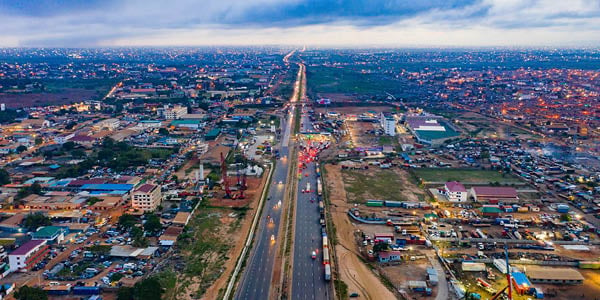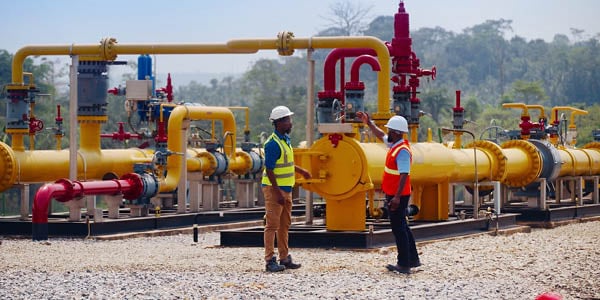Driving Ghana’s transition to greener energy
We believe Africa’s energy transition holds immense promise for regenerative growth that benefits communities, economies and the environment through decarbonisation in African economies.
With its population expected to nearly double to 2.5 billion by 2050 and a wealth of natural resources still to be unlocked, Africa holds immense promise for regenerative growth that benefits communities, economies and the environment through sustainable energy in Africa initiatives.
Africa’s energy transition is the cornerstone for building economies and unlocking potential. However, delivering energy that is at once reliable, affordable, and sustainable is a complex equation. Around 600 million people across the continent lack access to reliable electricity, making energy access in Africa a critical priority. As African nations pursue economic expansion and climate goals simultaneously, a just energy transition approach is critical, one that’s fair, inclusive, and responsive to Africa’s unique context.
“A just energy transition in Africa means ensuring the shift to cleaner energy happens in a way that doesn’t come at the cost of development,” says Rentia van Tonder, Head of Renewable Energy, Power and Infrastructure at Standard Bank. “We must decarbonise while also expanding access, creating jobs and building resilient local economies. The reality is Africa hasn’t fully industrialised yet, and that means our energy needs and how we meet them will look different from those of developed countries, with a need to continue investing in fossil fuels alongside renewables for some time.”
Addressing the infrastructure gap in Africa is a major factor in improving energy access in Africa. However, infrastructure projects are complex and capital-intensive, generally requiring collaboration between various stakeholders.
Balancing Africa’s energy priorities
Through a $325 million syndicated financing package, Standard Bank played a leading and underwriting role in Genser Energy’s gas pipeline in Ghana. The fully operational 430km network of natural gas pipelines represents a significant milestone in the energy transition in Ghana’s western region. With its recent expansion to Kumasi, the country’s second largest city, the company aims to unlock industrial sectors, supporting economic growth and strengthening the backbone of Ghana’s economy.
According to Baafour Asiamah-Adjei, CEO of Genser Energy, the company’s aim was to deliver a less carbon-intensive, more reliable energy alternative to the typical types of fuel used in West Africa by key industries like gold mining, manufacturing, and logistics. Reducing their reliance on diesel and heavy fuel oils demonstrates the practical progress that is being made when it comes to decarbonisation in African economies.
Although natural gas is often described as a “transition fuel” because it emits less carbon in terms of direct greenhouse gas (GHG) emissions compared to other fossil fuels, such as coal or oil, it remains a fossil fuel that contributes significantly to emissions, primarily through methane leakage during production and transportation, as well as emitting CO2 when burned.
However, Van Tonder says, Standard Bank remains pragmatic about the need for balance in Africa’s energy transition. “We follow a clear decarbonisation strategy. Yes, we still finance certain fossil fuel projects, but only where there’s a credible plan to reduce emissions and where the project supports broader development goals, like energy access or industrialisation,” she says. “Take our work with Genser, as an example. Their infrastructure helps users shift from diesel and liquified petroleum gas (LPG). That’s a big win in terms of starting to reduce emissions and improving reliability.”
Achieving a just transition for all
Asiamah-Adjei says the just energy transition in Africa must be grounded in realism, which includes protecting the continent’s most vulnerable. He frames the transition through the lens of three critical stakeholders: communities, governments, and the financial sector.
“The energy transition will change lives. But we must ensure it doesn’t cause systemic harm,” he explains. “If the pace of transition is too fast and economic alternatives aren’t in place, entire regions can be vulnerable to decline – schools, clinics, jobs, everything.” Many African countries, he notes, are heavily reliant on revenue from natural resources.
“You can’t just turn off the taps without thinking about how budgets will be funded,” he says.
Finally, he says, the financial sector must be brought along for the ride. Banks that invested in legacy infrastructure need pathways to participate in the new energy economy or risk being left with stranded assets. “A just transition must ensure that all players, including financiers, can adapt,” he explains.
Adopting a partnership approach
Standard Bank Corporate and Investment Banking (CIB)’s local expertise and Pan-African presence were key to the project’s viability.
“They brought global deal-making capability, but also a deep understanding of the cultural and commercial context,” Asiamah-Adjei notes. “They knew the off-takers, they understood the local risk, and they had the relationships to make it work.”
For Standard Bank, Van Tonder says, the project “aligns closely with our long-term strategic focus on decarbonisation and driving positive impact. We back projects that reflect the real ambitions and resilience of the continent while supporting renewable energy projects and Africa’s broader sustainable energy goals.”
Skills, scale and sustainable impact
Genser Energy’s approach also highlights another critical component of a just energy transition: people. The company invests heavily in local skills development, partnering with engineering universities and running a graduate rotation programme through Sponsors for Educational Opportunity (SEO) Africa.
“We train future engineers two to three years ahead of a project’s launch or expansion in a given country,” says Asiamah-Adjei. “They spend time in the field, rotate across departments, and come out with a well-rounded understanding of both technical systems and the communities they’ll serve.”
This dovetails with the Group’s strong emphasis on measurable impact, which incentivises progress against agreed sustainability targets, supporting both greater energy access and decarbonisation in Africa.
Van Tonder and Asiamah-Adjei propose that the lessons from the Standard Bank sustainable partnership with Genser Energy offer a scalable blueprint: start small, build incrementally, invest in local talent, and partner with institutions that understand Africa’s unique strengths and challenges. With the right infrastructure, partnerships, and mindset, Africa’s just energy transition isn’t just possible, Van Tonder says, it’s already underway.
This article was originally published on BBC.

